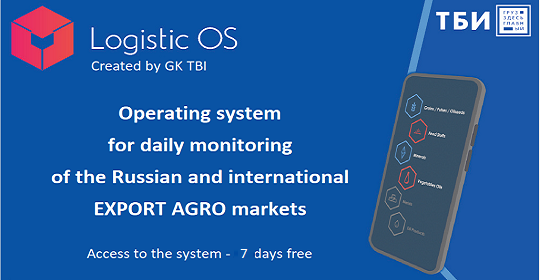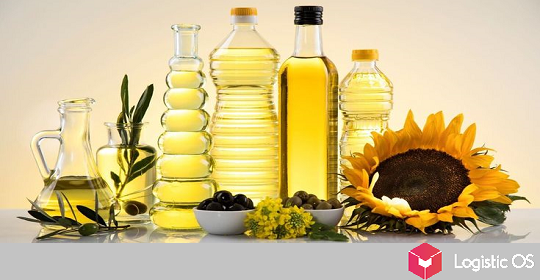The story of incomplete customs declaration has continued.
The proposals made by the Ministry of Agriculture to empower the Government to determine products that are not subject to incomplete customs clearance provoked response proposals from directly exporters.
Recall that incomplete customs declaration allows exporters to obtain an export quota without specifying the recipient, country of destination, and transportation methods.
This scheme was practiced by more than 70 exporters.
An interesting fact: the Government of the Russian Federation such a declaration when establishing quotas is not allowed, and EAEU title documents are allowed.
Apparently, some of the exporters took advantage of this discrepancy.
In general, the introduction of a quota for grain export in the spring of this year showed results suggestive: by April 26, the quota was fully selected. Moreover, volumes were declared that were twice the loading capacity of the ports.
As of April 26, 7 million tons were declared, and phytosanitary certificates were issued on the same date 3.8 million tons. This figure is just the actual product available.
Upon a more detailed examination, it turned out that the maximum amount of products that were declared to customs was exported by one of the largest companies in this area of the Reef Trading House.
What is interesting: from April 1 to April 24, this company announced the shipment of 480,000 tons — about 14% of all exports for the specified period.
And after the quota was exhausted, TD exported another 524,000 tons (19.5% of the total), using incomplete customs declarations, while at the same time practically fulfilling its obligations.
In the future, companies had to abandon a part of the shares in quotas due to the fact that they were selected for non-purchased grain.
And then it just turned out that it was TD “Reef” that subsequently most actively abandoned its shares.
On the numbers it looks like this: at present, EU members have already refused a total of more than 500,000 tons of cargo.
According to Opora Rossii, the largest market participants opened NTDs to parties that were partially not provided with goods. In fact, large traders simply manipulated the market.
Information also appeared that some companies simply traded quotas.

The result of all this was not only the shortfall in obtaining about 5 million dollars in profit by small and medium-sized businesses, but also the fact that many suffered significant losses: contracts were signed, ships were chartered, grain was in ports. And this is due to the fact that unloading and loading the ship costs about 1.5 million rubles, and its operation — 3.5 million rubles.
In order to avoid similar situations in the future, Opora Rossii came up with a proposal to supplement the resolution of the Ministry of Agriculture discussed in the government, and focus not on NTD, but on a phytosanitary certificate, which, in fact, confirms compliance with the quality standards of the country of destination and the available volumes.
On the other hand, such a proposal has its drawbacks: for various delays in logistics, manufacturers will not be able to ship goods on time until the limit has been reached.
The situation is not ruled out that exporters will be only «at the border» to find out whether they have met the quota.
As a result, they will either conclude contracts for a smaller number, or take more quotas and take risks.
In both cases, this will reduce competition.
Another option that could be possible is targeted quotas, that is, the quota is not set for the full amount allowed for export, but specifically for each company, according to its share in exports in the first half of the season.
The problem that has arisen, undoubtedly, requires an urgent solution, because restrictions on deliveries can be extended even after July 1 — high demand is maintained in the global market, and wheat stocks as of June 1 amounted to 2.6 million tons, which is 12.6% less than a year earlier, and 20.5% lower than the average for the last 5 years.

